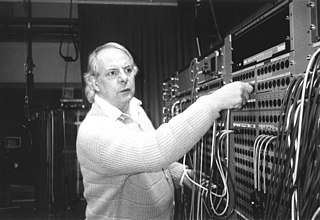A Quote by Bill Nye
The future of commerce is going to be all electronic. The gold standard was a fine idea, but electronic changes of funds and credits will be the future.
Related Quotes
In some ways it's hard to see electronic music as a genre because the word "electronic" just refers to how it's made. Hip-hop is electronic music. Most reggae is electronic. Pop is electronic. House music, techno, all these sorts of ostensibly disparate genres are sort of being created with the same equipment.
But the indeterminate future is somehow one in which probability and statistics are the dominant modality for making sense of the world. Bell curves and random walks define what the future is going to look like. The standard pedagogical argument is that high schools should get rid of calculus and replace it with statistics, which is really important and actually useful. There has been a powerful shift toward the idea that statistical ways of thinking are going to drive the future.
I'm trying to fly the flag for the days of electronic music where people who are making it are also building the gear because that was what was happening in the very early days of electronic music. And that spirit is one of the things that really appeals to me about electronic music so I'm putting this forward as a way to keep that.
In the future, women will have breasts all over. In the future, it will be a relief to find a place without culture. In the future, plates of food will have names and titles. In the future, we will all drive standing up. In the future, love will be taught on television and by listening to pop songs.
The place of electronic music, culturally and socially, is today completely different - it is now everywhere, and it has been totally accepted. Consequently, there is now a younger generation that is more focused on making great electronic music, good parties, and having fun, where there is not any more so much need for cultural and ideological statements in electronic music itself.
People are more likely to search for specific books in which they are actively interested and that justify all of that effort of reading them. Electronic images and sounds, however, thrust themselves into people's environments, and the messages are received with little effort. In a sense, people must go after print messages, but electronic messages reach out and touch people. People will expose themselves to information in electronic media that they would never bother to read about in a book.





































